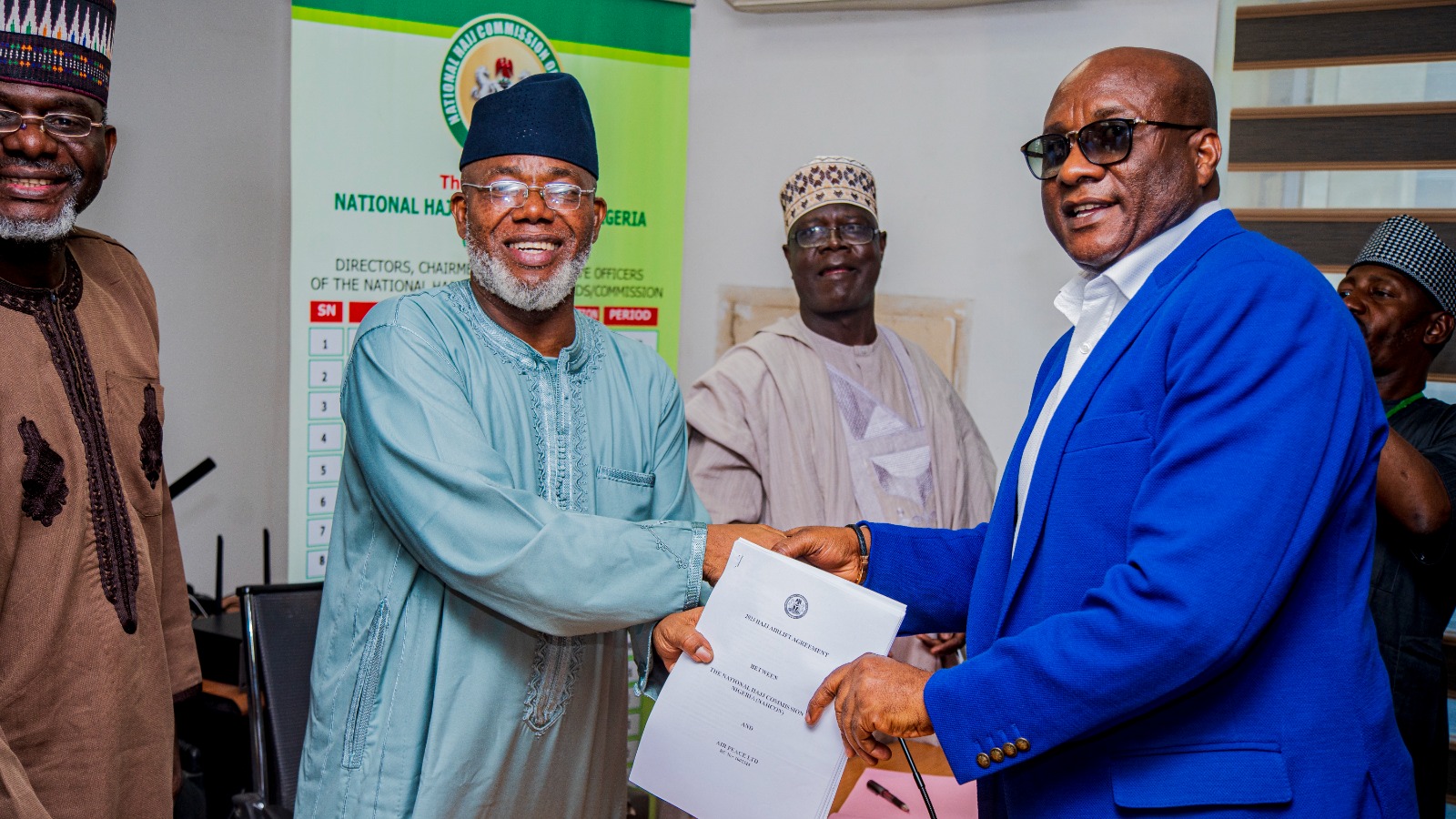Four Nigerian airlines approved for airlift of pilgrims to Saudi Arabia for this year’s Hajj on Tuesday, signed the agreement with the National Hajj Commission of Nigeria (NAHCON) after their initial reluctance to sign an airlift agreement,
The four airlines, Air Peace; Azman Air Services; Aero Contractor and Max Air, had Thursday last week refused to sign the agreement, citing the ongoing Sudan crisis and requested for further consultations.
Only the Saudi Arabian airline, Fly Nas, signed the agreement with NAHCON.
Speaking at the signing event held at the Hajj House, Abuja, in the presence of chief executives of the four airlines, NAHCON Chairman/Chief Executive Officer (CEO), Alhaji Zikrullah Kunle Hassan, lauded the patriotic zeal of the airlines for their sacrifices in the face of the challenge posed by the ongoing Sudan crisis.
While saying the Hajj body was aware of the challenge posed by the crisis to their operations, Hassan appealed to the airlines not to burden the intending pilgrims with additional charges.
According to the NAHCON boss, “We are not unmindful of the challenge posed by the closure of the Sudan airspace to your Hajj operation. However, I wish to appeal to your conscience and sense of patriotism not to further burden the pilgrims with additional costs or changes.”
In their separate remarks at the event, the Managing Director of Aero Contractors, Captain Ado Sanusi, said that the airlines were not unmindful of the plight of pilgrims who had earlier paid their Hajj fares before the Sudan crisis broke out.
He added that they initially refused to sign the agreement due to logistics and operational needs.
According to Sanusi, “we are constrained to take that decision because of logistics and operational needs. We won’t like anything that will disrupt our operation halfway.”
On his part, the Chairman of Air Peace, Chief Allen Onyeama, said that their call for the review of the airlift agreement with NAHCON was not to exploit the Sudan crisis for business gains or opportunities, saying that they care for the pilgrims.
“We care for the Nigerian pilgrims, many of who we know to have made personal sacrifices in paying for Hajj. We are also mindful of the fact that the pilgrims had already paid before this crisis broke out.
